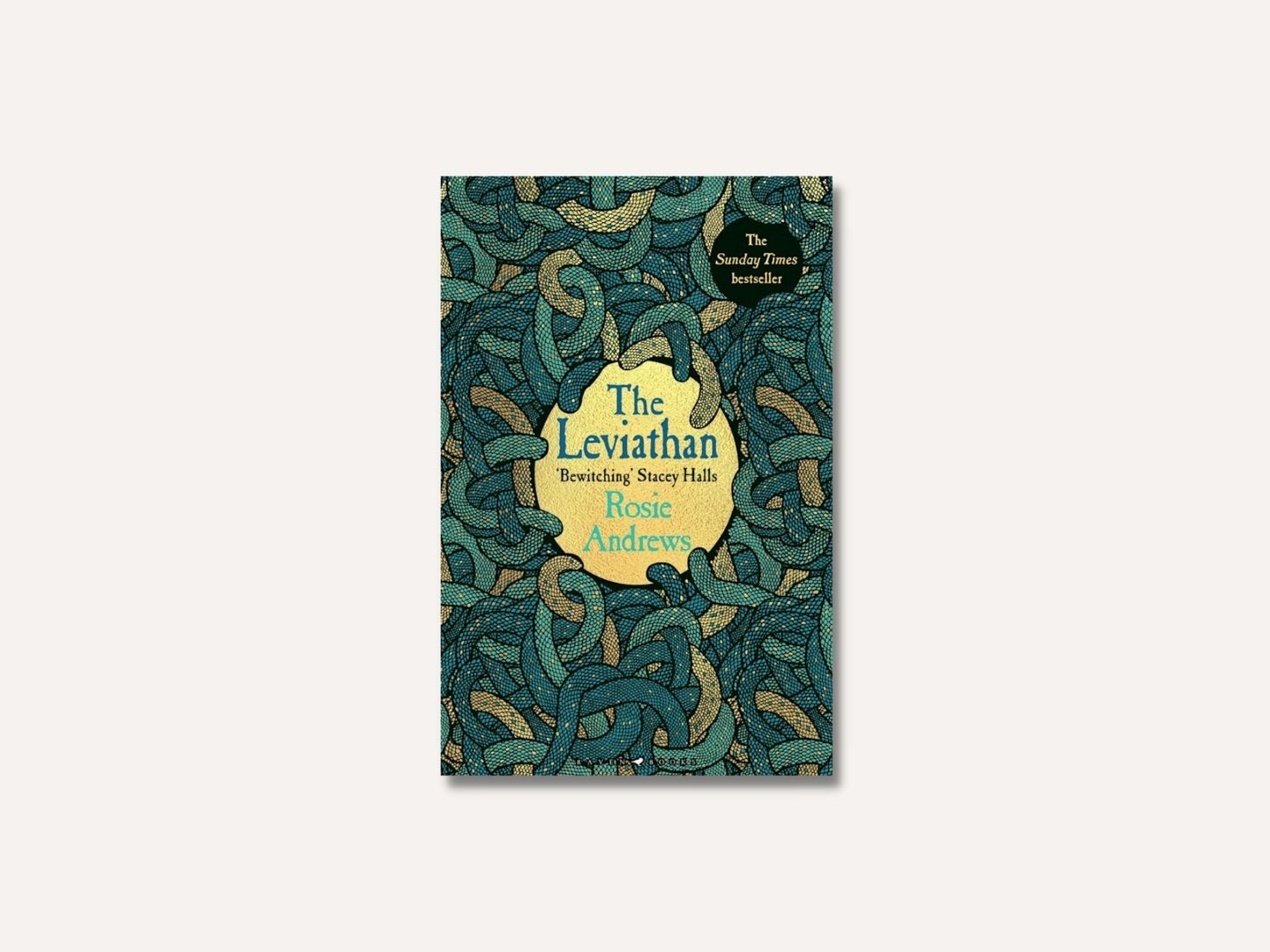
Andrews’ The Leviathan is a thrilling book, steeped in believable detail despite the mystical and mythical themes (Photo: Raven Books)
More than 80% of our oceans are still unexplored, so larger-than-life myths of monstrous sea creatures tend to capture our imaginations — fuelled of course by legends and other stories of old.
Sirens, the kraken, the Loch Ness Monster … most cultures have conjured up their own tales of such creatures, using descriptions aimed at making you shiver. So, the title of Rosie Andrews’ debut novel, The Leviathan, is the perfect indicator of the dark and gothic tale she tells, one that melds magic and myth. Top that off with the cover art — mesmerising, slithering serpents in blues and greens — and you would not need to read the synopsis to know what you are in for.
The Leviathan begins ominously with, “She is awake”. Immediately a feeling of trepidation and unease is evoked, which Andrews manages to maintain quite skillfully throughout most of the novel’s 30 chapters. Who and what she is are questions readers ask themselves, and soon the main character, Thomas Treadwater, does too. Andrews’ gothic style has a feel of Ann Radcliffe and the Brontë sisters, especially with the mention of salt or seawater foreshadowing the monster’s mischief and how anxiety and darkness seep through every page.
rosie_andrews.jpg

Jumping back and forth between the past, 1643-44 in North Norfolk, to the present, 1703 “in a place far from the sea”, the story follows Treadwater from the moment he arrives home after reluctantly fighting in England’s Civil War. He returns because of a letter from his sister Esther, which claims their widowed father is in trouble and the new servant in the house is the cause of all their problems. Thinking that Esther is perhaps overcome with youthful jealousy and petty feelings, Treadwater is unperturbed, excited to be home and able to sleep peacefully in his bed. Little does he know that his whole world is about to turn upside down.
The Leviathan is written in the first person, positioning the reader comfortably in Treadwater’s point of view. As elements of witchcraft and darkness enter his life — all of which, Esther claims, begin to explain their father’s sudden turn of ill health — we see his immediate scepticism. While protective of his sibling, Treadwater is also exasperated with notions of witchcraft, which he feels is superstitious nonsense. It is doubly interesting as he struggles with his own faith. As more unexplainable things occur, we see the protagonist shed some of his bravado, “Of course I fear what I do not know. What else is there to terrify us?” he says.
But what is a Leviathan? In Jewish mythology, it is a primordial sea serpent. Its name is Livyatan in Hebrew. The creature embodies chaos and is used in the Old Testament as a symbol of evil. A line from the Bible is even recited in the novel by John Milton — Treadwater’s tutor, a character based on his namesake, the English poet who wrote Paradise Lost and Paradise Regained. “It makes the depths churn like a boiling cauldron and stirs up the sea like a pot of ointment. It leaves a glistening wake behind it,” he recites.
As the story builds, magic and witchcraft take a turn towards “Gods and monsters, myths and legends”. Treadwater uncovers his father’s secrets and buried family skeletons, and starts to question what is real. As he attempts to get a handle on the mysterious monster that is corrupting his life, he and Milton look at the different representations of the Leviathan and how this sea creature is interpreted in various cultures.
He learns of the serpent Tiamat from Babylonian myth and Milton talks of Thor, from Norse legends, defeating Jörmungandr, “the Great Serpent”. Milton even mentions the legend of the hippocamp. “I say legend, because that is precisely what it is; stories, passed down by early adventurers on the Mediterranean to more land-locked listeners, who took tales of what we must assume to be whales and sharks, and turned them into what they could more easily conjure in their minds: a creature that combines features of sea-going beasts of limitless size with those they could put their own hands and eyes upon; horses and snakes.”
While this serpent-like “deity of the ancient world” consumes Treadwater, Andrews’ story reveals quite interesting elements of human nature, especially relating to belief systems and human endurance. Quotes from the Bible, lines from scripture and catechism are frequent, all while the characters “battle” evil. Treadwater has a very clear idea of what is right and wrong, but it is the line between good and evil, where a higher power fits in, is what he debates in the story. “The existence of evil, I feared, did little to confirm the existence of good,” he ponders.
Andrews’ The Leviathan is a thrilling book, steeped in believable detail despite the mystical and mythical themes. For lovers of myth and murder, it is certainly easy to enjoy. With a compelling plot that features many twists and turns, it tackles themes such as family, superstition, politics and religion. The author has successfully created a spellbinding atmosphere with this tale of gothic horror, making it an engaging and thought-provoking read.
This article first appeared on Feb 7, 2022 in The Edge Malaysia.


